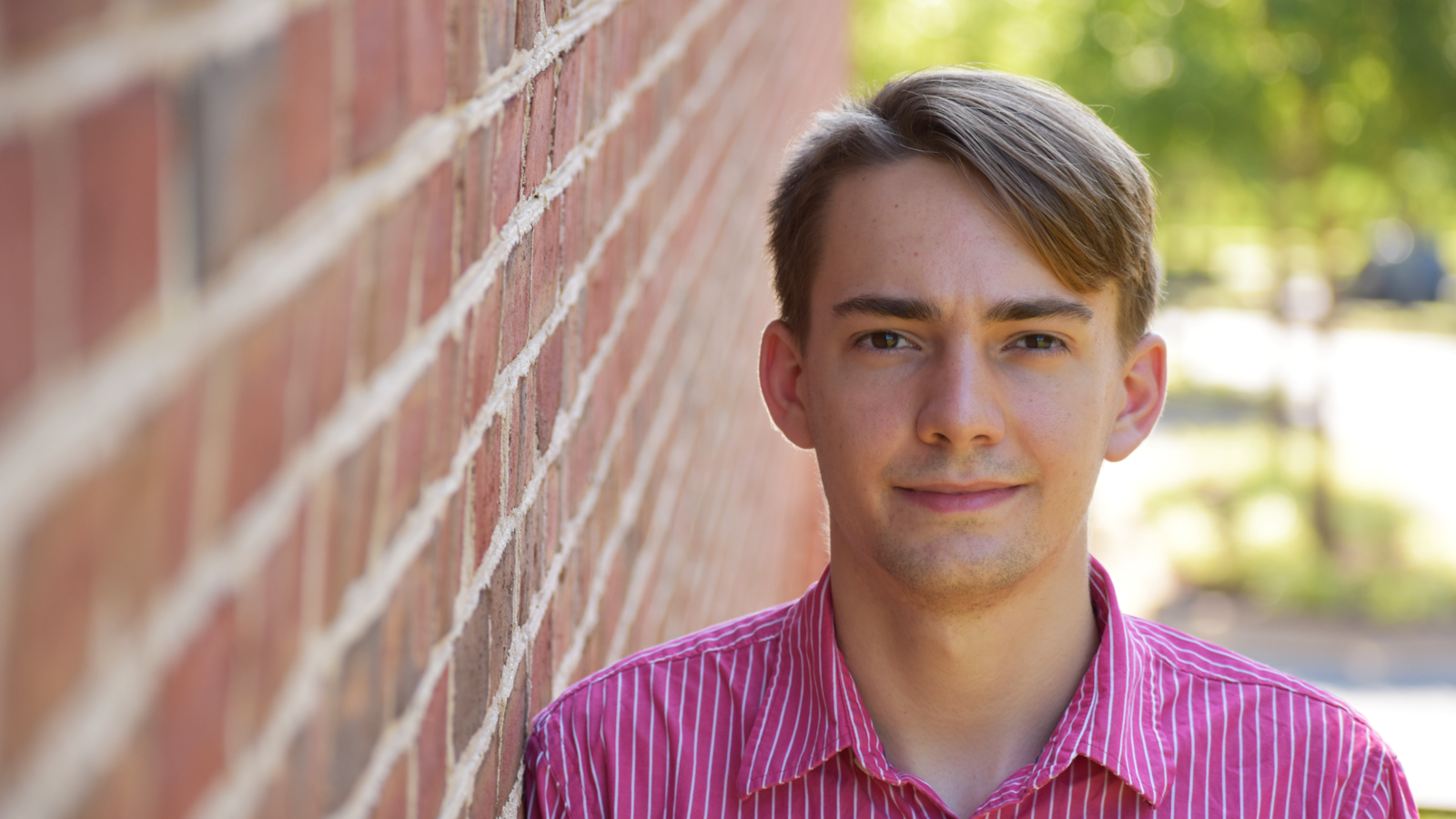
Renaissance Researcher Wins Top Undergrad Prize
Bouldering. Training for the U.S. Space Force. Playing guitar. Completing a dual major at the University of Virginia in computer science and math with highest distinction. Working as a researcher, having his thesis on coupled networks and contagions submitted to the journal, Network Science, and co-authoring three other scientific papers. These are just a few of the reasons the UVA Biocomplexity Institute is proud, but not surprised, that Henry Carscadden, one of its own, is a 2021 recipient of the Louis T. Rader Undergraduate Research Prize in computer science.
Henry received his award in May, just ahead of graduating, when he was also commissioned as a 2nd Lieutenant, having served in UVA’s Air Force ROTC program as an undergraduate.
The caliber of UVA students and Institute student-researchers is exceptional, as Henry’s resume attests, said Madhav Marathe, distinguished professor in Biocomplexity, professor of computer science, and director of the Institute’s Network Systems Science and Advance Computing division. Henry is to be commended for his stellar achievements, along with his mentors, research professor S.S. Ravi, research associate professor Christopher Kuhlman, and senior software architect Dustin Machi.
Mentorship Matters
“They definitely have taught me about the research process and helped me find a niche,” Henry said of his Institute mentors. “Developing software for them also expanded my technical skills.”
His introduction to them came in 2019, when he participated in the Institute’s C4GC summer program. At the end of the program, Ravi invited him to stay and work on another project. After that, “I just kept finding more projects,” Henry said.
“Most of my work has been on network models. I have done research on understanding contagion dynamics and created tools for network analysis. I am working on a webapp now, and will continue to work on that. I've got some ideas about new heuristics to deal with multiple interacting contagions spreading on networks.”
Of his mentee, Ravi said, “from our very first conversation, Henry came across as a highly motivated student who was very keen to learn new ideas and do research. His algorithm design and software development skills were excellent.”
Henry's other BII mentors Chris and Dustin also speak highly of his problem-solving and programming skills, and his role as a wonderful team player.
“A few meetings convinced us that Henry had the ability to contribute to several of our ongoing projects,” Ravi said. They have included: Algorithms for Epidemic Forecasting; Propagation of Two Contagions on a Network; and the graph transformation subsystem for the ongoing net.science project.
“Having mentored students for more than 35 years, I have found that once we get students started on a research project, they can develop it in directions that we didn’t even think about,” Ravi said. “They are often more aware of current research literature, software tools and technology-based solutions, and it is often the case that mentors learn more from their mentees than the other way around.”
When Unplugged
When Henry unplugged from his undergraduate studies, research, and ROTC duties, he made time for community service, clearing area trails and volunteering with local charities. He was also on the UVA Climbing team. A highlight was competing and placing third in the Triple Crown duathlon, a running and bouldering event that brings together students from universities throughout the Southeast.
The pandemic shut down many of these activities this past year, but Henry kept on top of his studies and research remotely, and also did some hunting, weight lifting, and honed his guitar skills. He even happened to be in Germany visiting his girlfriend when the COVID-19 UK variant emerged.
Space Force and Beyond
Henry chose the Air Force ROTC because it covered his tuition and he liked the travel and career opportunities it will afford.
In the Space Force, “I'll be working with satellites, which just seems to be an interesting job with growing importance.” He also enlisted because it’s a family tradition. “My grandpa enjoyed the military. He was an Army parachutist and spent 20 years in the service.”
A Goochland, VA, native, Henry will continue to work at the Institute until he reports for USSF duty in May 2022. He will also begin work on his Master’s degree in systems engineering, specifically space craft engineering, next spring at the Air Force Institute of Technology.
“I have learned a lot about the broader world of computer science” working at the UVA Biocomplexity Institute, Henry said. Continuing there, post-graduation, “will definitely give me some direction for grad school, and learning about systems design will be helpful for the USSF.”
Ravi agrees. Should Henry continue down the research path he’s now on, “I strongly believe that he will be able to contribute to scientific advances in areas related to software engineering, machine learning, and modeling and simulation” during his career.
Madhav is extremely proud of what Henry and his mentors have accomplished. “Henry is the first Institute intern to win this award, and I’m sure he won’t be the last.”